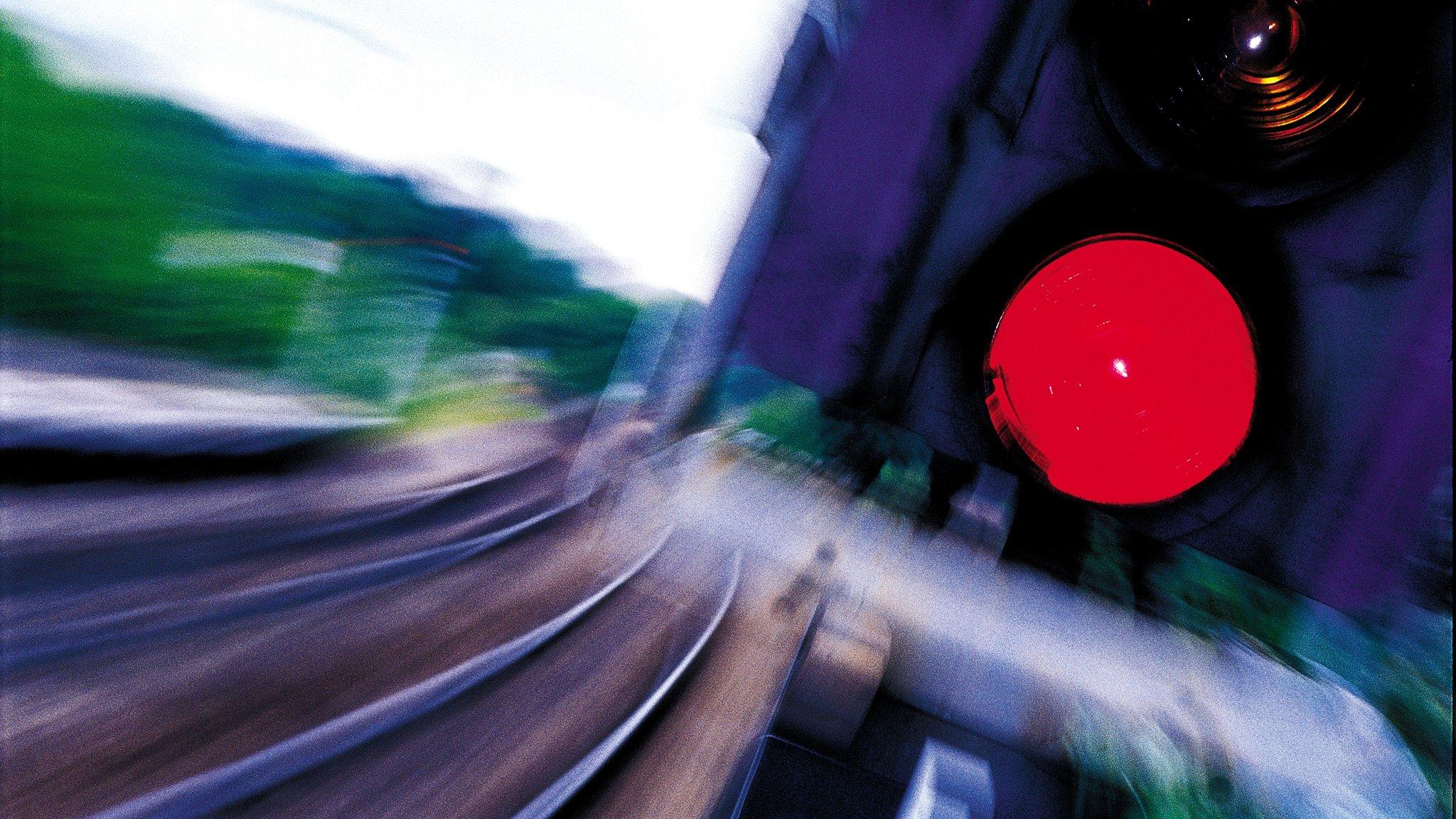Ex-Network Rail boss says there was no sign of a crisis emerging
- Published
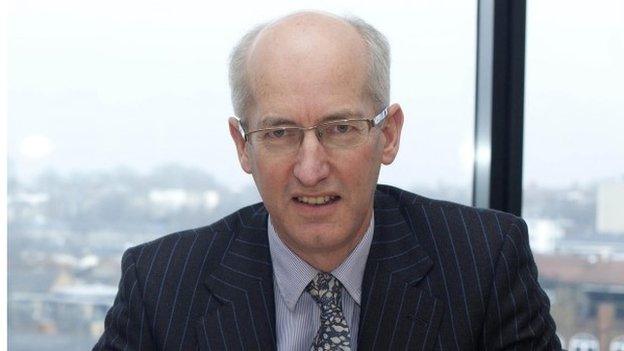
The former Network Rail boss, Sir David Higgins, has told the BBC there was "no indication of a crisis emerging" while he was running the company.
Network Rail was recently forced into an embarrassing admission that it can't deliver three huge modernisation projects on time or on budget.
Sir David, who was speaking exclusively to the BBC, ran Network Rail between 2011 and 2014.
He is now executive chairman of the High Speed 2 (HS2) project.
During the interview, he was also keen to back Network Rail's current boss, Mark Carne, describing him as "strong".
"We are highly supportive. Don't underestimate how difficult it is working on live railway," he said.
Sir David stressed that the massive cost overruns at Network Rail won't affect the budget of HS2. They are separate companies but both funded by the government.
HS2 "has a defined budget controlled by the Treasury", he told me. "There is no reason to confuse them."
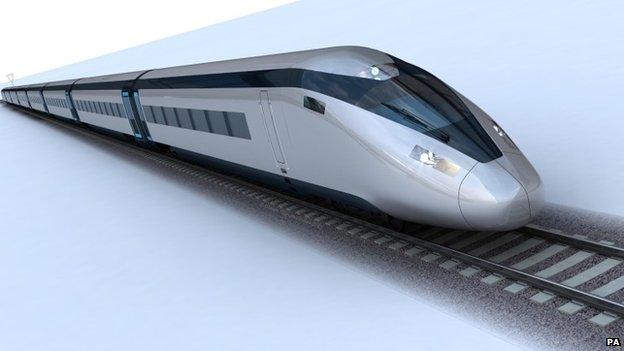
Sir David Higgins is now executive chairman at HS2
What went wrong at Network Rail?
Network Rail has bitten off more than it can chew.
Having not electrified a big line for twenty-plus years, they agreed to electrify three at once. Two of those schemes, through the Midlands and across the Pennines, have since been "paused", while they concentrate on the third, beefing up the link between London and the South West of England and South Wales.
I have spoken to a large number of very senior people in the industry, people who don't want to go on the record (to be clear, I do not mean Sir David Higgins).
They were throwing punches everywhere. At Network Rail for misjudging the costs and staffing problems. At the regulator, who did warn of problems ahead but still agreed to the plans and the costs. And at the government, who plenty of people feel knew the scale of the problems before the election, something ministers vehemently deny.
'Extremely challenging'
But a narrative emerged amongst several well placed people I spoke to.
A feeling that the board currently running Network Rail simply didn't have enough railway experience to see the problems looming on the horizon. There has been quite a "brain drain" of senior execs, I've been told.
"Everyone at the top has come in at the top, they haven't worked their way up". And there were suggestions that no-one was offering "practical counsel" to the new boss, an oil man, Mark Carne.
One person said to me, "I feel for Mark Carne, he's inherited something extremely challenging".
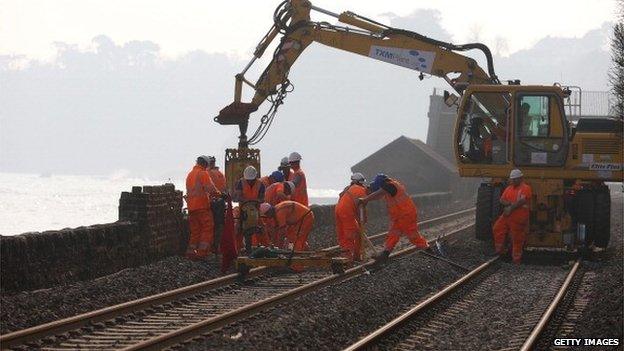
Network Rail had to repair around 100 metres of sea wall destroyed by storms in early 2014
I asked Sir David if he felt there was a lack of relevant expertise at the top of his old company.
"I don't accept that", he told me. "I think that Peter [Hendy, the new chairman] and Mark Carne are a strong team, a supportive partner."
Another critical factor came last September, when Network Rail's finances, including its £38bn debt, were put onto the government's balance sheet. In the old days, the company might have borrowed more money from private investors, if the regulator approved, to see projects through.
One very experienced person suggested that, "ministers might turn a blind eye" to the extra costs, as long as the job got done.
Now all the money comes from the Treasury, a change which jointly restricts flexibility and increases scrutiny from politicians. It represents a "sea change" according to one person I spoke to.
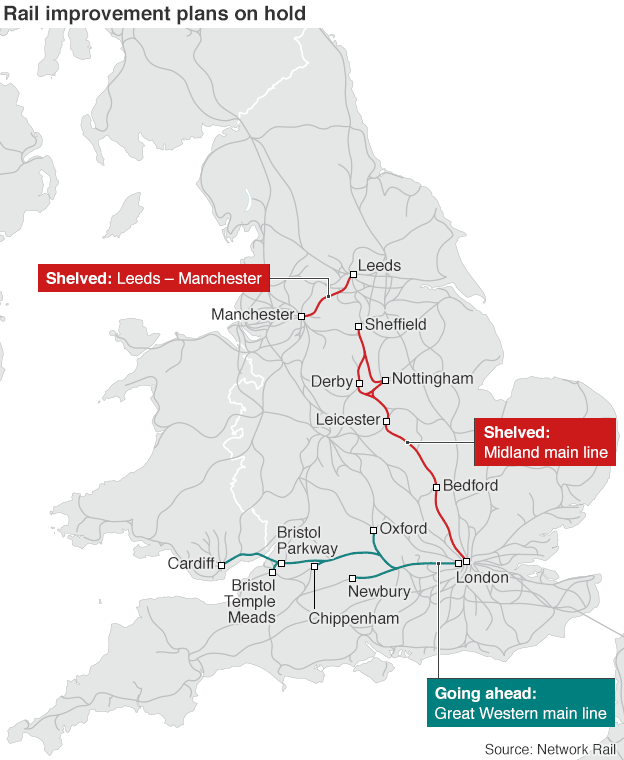
Key mistakes
This didn't happen overnight. Plans to spend a record amount of money on our railways began in September 2011. Everyone was involved - industry, Network Rail, the government, the regulator.
But even after years of negotiation, fundamental details haven't been worked out.
For example, are there enough specialist engineers to do the job? And how tricky will it be to make major changes to all those Victorian bridges and tunnels whilst still running trains on the line during the day?
Network Rail bought a purpose built, £45m factory train that was meant to put in 120 electrification piles a week. One experienced person told me the best he'd heard it manage was 30. Apparently, it can be quicker on some days, but it was meant to replace all those missing engineers and it hasn't worked as they hoped.
Under pressure
Sir David Higgins says there won't be similar issues with HS2 though. It's "very, very different", he told me. "For us, it's like trying to build a new motorway. Our electrification is very simple. They [Network Rail] are having to work out of hours, trying to modify track and bridges on the existing railway."
To be clear, Network Rail also does a lot of things right. The repairs after storms destroyed the line at Dawlish were phenomenal. They're balancing aged infrastructure with record growth, which is no mean feat.
So now we sit and wait for the new chair, Sir Peter Hendy, to report back in the autumn on what projects will actually go ahead, when, and how much they will cost.
The government's under a lot of pressure to prove its much vaunted plans for a "northern powerhouse", won't suffer as a result.
- Published25 June 2015
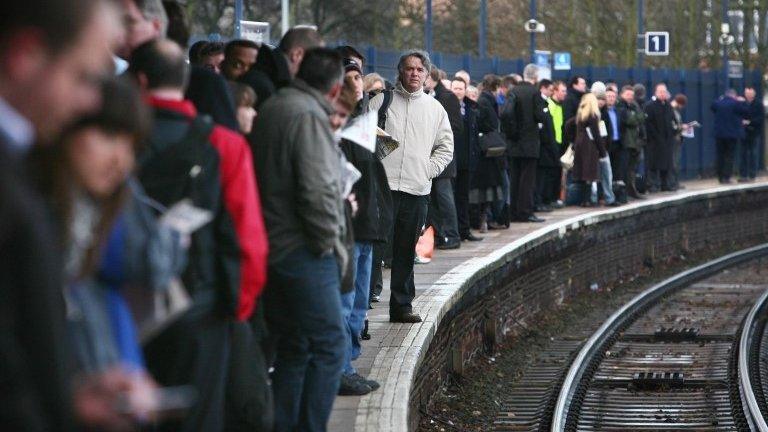
- Published25 June 2015
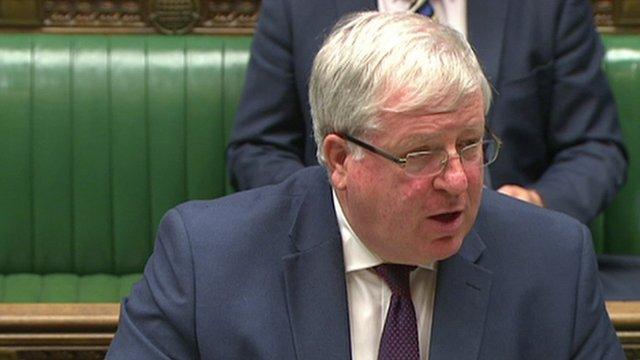
- Published25 April 2015
